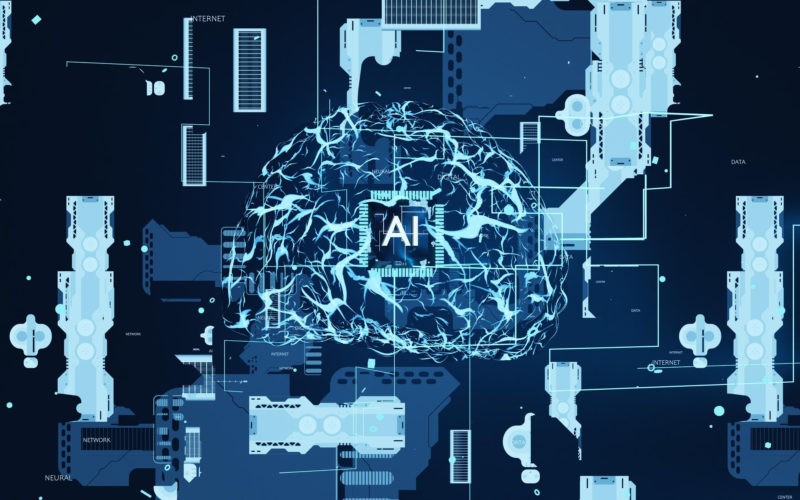Why AI Software is More Effective for E-Commerce Than Standard Solutions
The e-commerce landscape is continually evolving, driven by advancements in technology and changing consumer behavior. Among these advancements, AI in ecommerce stands out as a game-changer, offering capabilities that far exceed those of standard solutions. This article explores why AI software outperforms traditional e-commerce solutions, focusing on its impact on personalization, inventory management, customer service, security, and marketing strategies.
What Distinguishes AI Software from Standard E-Commerce Solutions?
AI software development services bring a level of intelligence and automation to e-commerce that standard solutions cannot match. Traditional e-commerce systems typically rely on predefined rules and manual inputs, limiting their ability to adapt to changing conditions and individual customer preferences. In contrast, AI-driven solutions leverage machine learning and data analytics to continuously learn and improve, providing more accurate and dynamic responses. This adaptive nature of custom AI development allows e-commerce businesses to offer highly personalized experiences, optimize operations, and make data-driven decisions.
How Does AI Enhance Customer Experience and Personalization in E-Commerce?
One of the most significant advantages of AI solutions for ecommerce business is their ability to enhance customer experience through personalization. AI algorithms analyze customer data, including browsing history, purchase patterns, and preferences, to deliver tailored product recommendations and personalized marketing messages. This level of personalization not only improves customer satisfaction but also increases conversion rates and average order values. For example, AI can dynamically adjust website content, emails, and advertisements to align with individual customer interests, creating a more engaging shopping experience.
What Role Does AI Play in Improving Inventory Management and Supply Chain Optimization?
Inventory management and supply chain optimization are critical areas where AI can significantly outperform standard solutions. AI-driven systems can predict demand with greater accuracy, ensuring that inventory levels are optimized to meet customer needs without overstocking or understocking. Machine learning models analyze sales data, market trends, and external factors to forecast demand and adjust inventory accordingly. This predictive capability helps reduce costs, improve cash flow, and enhance customer satisfaction by ensuring products are available when needed.
How Does AI-Driven Analytics Provide Deeper Insights into Customer Behavior and Preferences?
AI in ecommerce excels at analyzing vast amounts of data to uncover deep insights into customer behavior and preferences. Traditional analytics tools may struggle to process and interpret large datasets, but AI-driven analytics can quickly identify patterns and trends. These insights enable e-commerce businesses to understand their customers better, anticipate their needs, and tailor their offerings accordingly. For instance, AI can segment customers based on behavior and preferences, allowing for more targeted marketing campaigns and personalized product recommendations.
What Are the Benefits of Using AI for Dynamic Pricing and Demand Forecasting in E-Commerce?
Dynamic pricing and demand forecasting are areas where AI offers substantial benefits over standard solutions. AI algorithms can analyze market conditions, competitor pricing, and customer behavior in real-time to adjust prices dynamically. This ensures that e-commerce businesses remain competitive while maximizing profits. Additionally, AI-driven demand forecasting helps businesses anticipate market fluctuations and adjust their strategies proactively. This dynamic approach to pricing and forecasting enhances profitability and customer satisfaction.
How Can AI Improve Customer Service and Support Through Chatbots and Virtual Assistants?
Customer service is another critical area where AI development services provide a significant advantage. AI-powered chatbots and virtual assistants can handle a wide range of customer inquiries, providing instant and accurate responses. These AI-driven solutions operate 24/7, ensuring that customers receive support whenever they need it. Moreover, AI chatbots can learn from interactions, continuously improving their responses and handling more complex queries over time. This reduces the workload on human customer service representatives and enhances the overall customer experience.
What Are the Security Advantages of Using AI in E-Commerce Platforms?
Security is a paramount concern for e-commerce businesses, and AI offers robust solutions to enhance platform security. AI-driven security systems can detect and respond to threats in real-time, identifying patterns of fraudulent activity and preventing breaches before they occur. Machine learning models analyze vast amounts of data to detect anomalies and potential security threats, providing a proactive approach to cybersecurity. This level of protection is crucial for maintaining customer trust and safeguarding sensitive information.
How Does AI Contribute to Better Marketing and Targeted Advertising Strategies in E-Commerce?
Marketing and advertising are significantly enhanced by ai software development services. AI can analyze customer data to create highly targeted marketing campaigns, ensuring that promotional messages reach the right audience at the right time. Machine learning models can predict customer behavior, allowing businesses to tailor their advertising strategies to individual preferences and purchase patterns. This targeted approach increases the effectiveness of marketing campaigns, leading to higher engagement and conversion rates.
What Are Some Real-World Examples of E-Commerce Businesses Successfully Leveraging AI Software Over Standard Solutions?
Several e-commerce businesses have successfully leveraged ai development services to outperform their competitors:
- Amazon: Amazon uses AI extensively for product recommendations, dynamic pricing, and inventory management. Their AI-driven personalization engine significantly boosts sales by suggesting relevant products to customers.
- Alibaba: Alibaba’s AI-powered chatbot, AliMe, handles millions of customer inquiries during high-traffic periods like Singles’ Day, providing instant support and improving customer satisfaction.
- Shopify: Shopify integrates AI to help merchants optimize their online stores, offering features like personalized product recommendations and dynamic pricing adjustments.
- eBay: eBay uses AI for image search and inventory optimization, enhancing the shopping experience and ensuring that products are readily available.
In conclusion, AI in ecommerce offers transformative benefits that standard solutions cannot match. By enhancing personalization, improving inventory management, providing deep customer insights, and bolstering security, AI-driven solutions empower e-commerce businesses to operate more efficiently and effectively. As the e-commerce landscape continues to evolve, leveraging custom AI development will be crucial for businesses seeking to stay competitive and meet the ever-changing demands of their customers.












